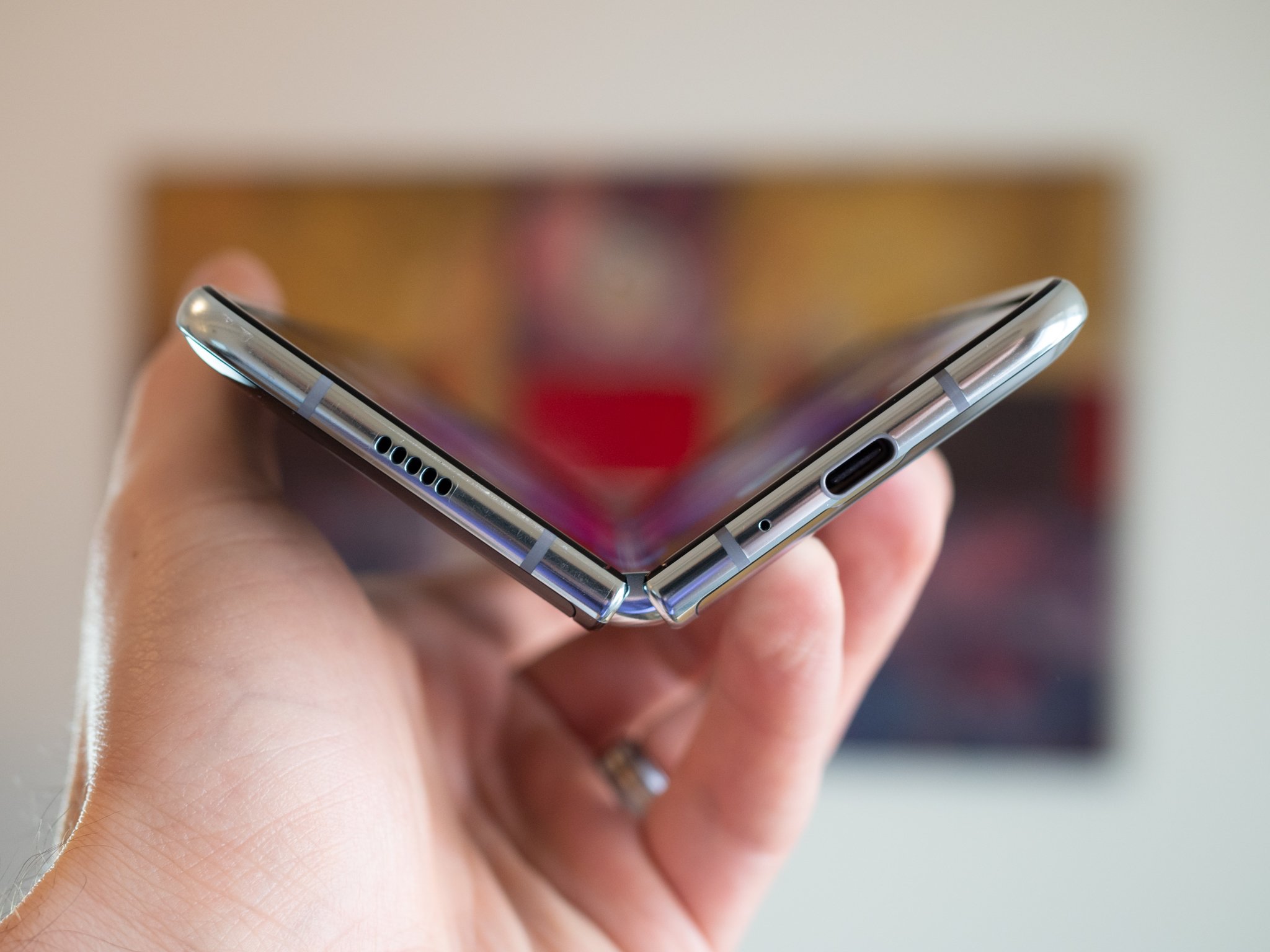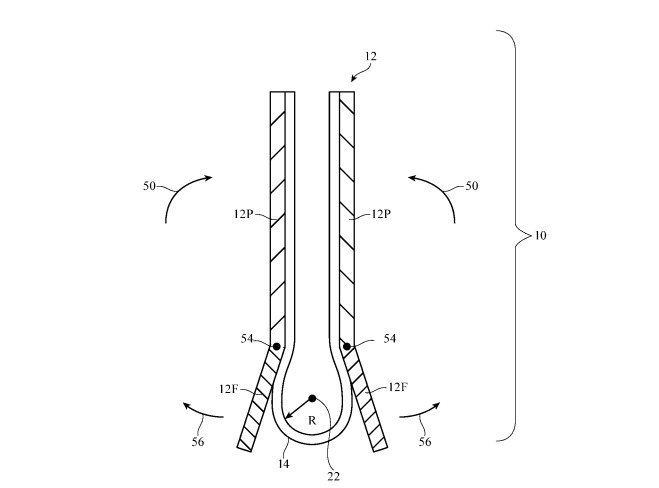Patent suggests Apple might have solved the folding phone creasing problem

What you need to know
- Samsung, in particular, is embracing the folding phone.
- Apple is expected to follow suit in the future.
- A new patent suggests it may have solved the screen creasing problem.
With more and more Android phone makers trying their hand at making a folding phone, all eyes are on Apple to see whether it will follow suit. There's no doubt that there are prototype foldable iPhones hidden deep inside Apple Park. But will they ever see the light of day? If they do, this patent for a folding mechanism might just be the reason.
The patent, spotted by Apple Insider and titled "Electronic devices with flexible displays and hinges," appeared today and explains how Apple hopes to prevent one of the problems that blight all foldable phones – their screens have creases where they fold.
This patent seems to suggest that Apple has a solution for that, though.
An electronic device may have a flexible display that overlaps an axis. The display may be supported by a housing. The housing may have first and second portions that rotate relative to each other about the axis. The housing may be placed in an unfolded configuration to support the display in a planar state. The housing may also be placed in a folded configuration by rotating the first and second portions relative to each other. A hinge mechanism may be used to ensure adequate separation between the first and second portions when the housing is bent. Movable flaps may be retracted when the housing is bent to create room for a bent portion of the display.A hinge mechanism may be used to ensure adequate separation between first and second portions of the housing when the housing is bent. This ensures that the flexible display can maintain a desired minimum bend radius in the vicinity of the bend axis. The hinge mechanism may be based on a rack-and-gear arrangement or other arrangement that maintains the first and second housing portions at a desired distance from each other.With another arrangement, the housing may have movable flaps that extend parallel to the bend axis. The movable flaps may be placed in a planar configuration to support the display when the housing is in its unbent state. The movable flaps may be retracted when the housing is placed in its bent state. This creates room for a bent portion of the display along the bend axis.

The gist of all that is much more simple than it sounds. It appears Apple's plan is to reduce the stress caused on the display when it's folded, thus reducing the risk of creasing. From the images also attached to the patent Apple's hinge seems to bend the display outwards slightly to alter the radius of the curve, giving it more room to bend back on itself.
Of course, it's important to remember that Apple registers patents at every opportunity, with few turning into shipping products. But if Apple does decide that a foldable iPhone is in its future, I'd suspect that this patent might – at least in part – be behind that decision.
iMore offers spot-on advice and guidance from our team of experts, with decades of Apple device experience to lean on. Learn more with iMore!

Oliver Haslam has written about Apple and the wider technology business for more than a decade with bylines on How-To Geek, PC Mag, iDownloadBlog, and many more. He has also been published in print for Macworld, including cover stories. At iMore, Oliver is involved in daily news coverage and, not being short of opinions, has been known to 'explain' those thoughts in more detail, too.
Having grown up using PCs and spending far too much money on graphics card and flashy RAM, Oliver switched to the Mac with a G5 iMac and hasn't looked back. Since then he's seen the growth of the smartphone world, backed by iPhone, and new product categories come and go. Current expertise includes iOS, macOS, streaming services, and pretty much anything that has a battery or plugs into a wall. Oliver also covers mobile gaming for iMore, with Apple Arcade a particular focus. He's been gaming since the Atari 2600 days and still struggles to comprehend the fact he can play console quality titles on his pocket computer.
